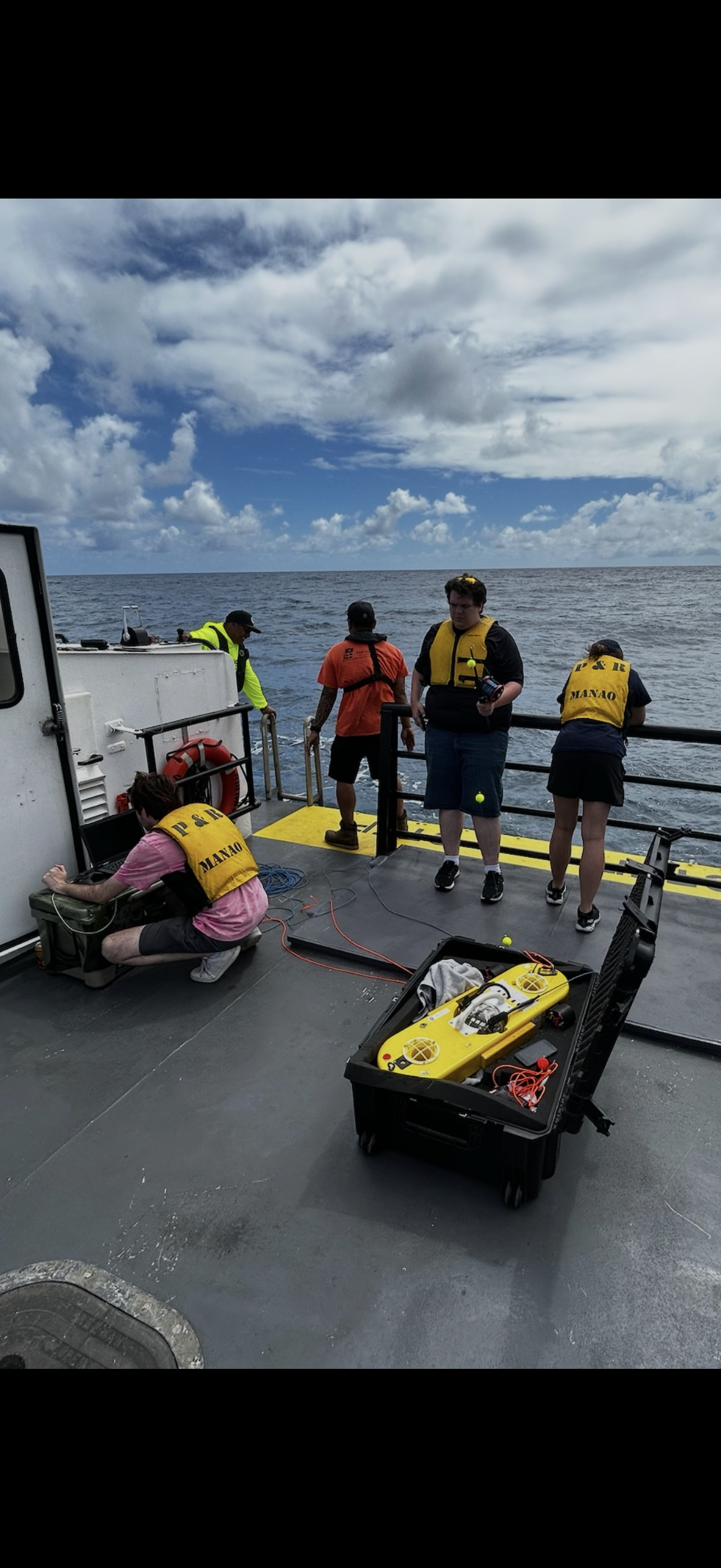Hawaii Deep Sea Coral Reef Field Study
Participated in a week-long field study mission off the coast of Oahu to collect images of deep sea coral reefs using ROVs. Served as an assistant in a four-student team, performing extensive repairs and maintenance on underwater robotics systems during the field study, including work with LSU-developed ROVs Bruce and DORIS.
